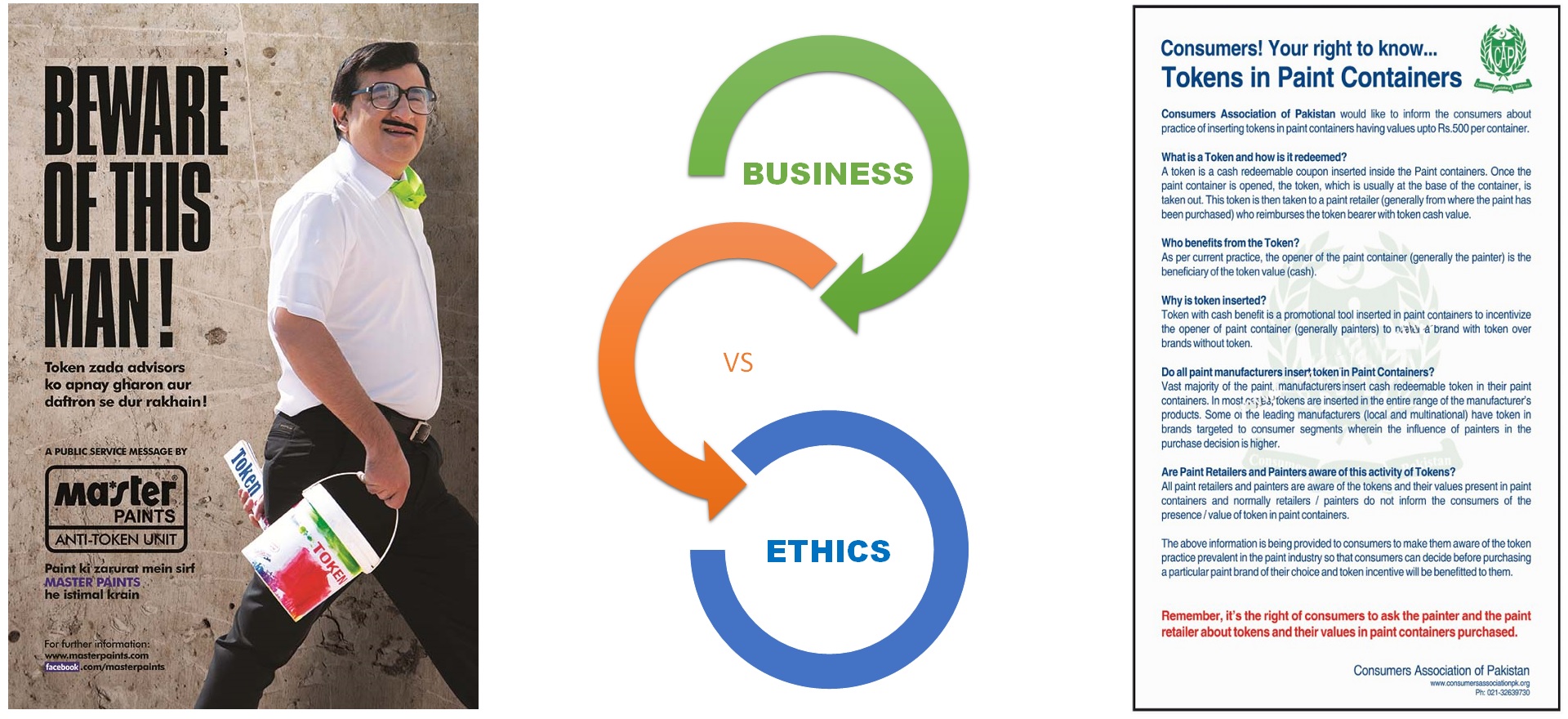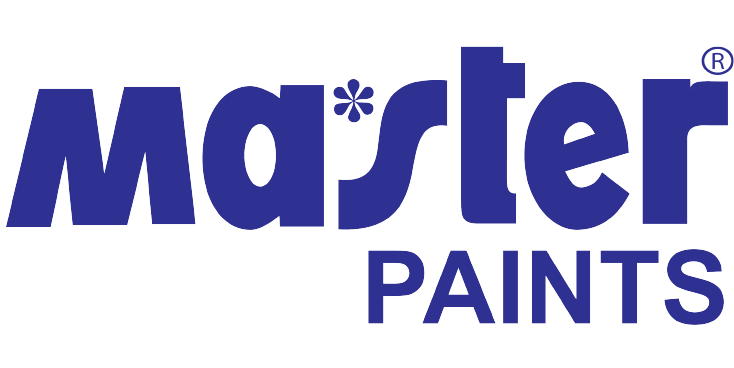
The Token Controversy Secret in Pakistan's Paint Industry
The story of tokens in Pakistan's paint industry shows how
some
companies have been tricking customers. These companies hid tokens in
paint cans, making it seem like the price was lower than it really
was. This raises important questions about fairness and honesty in
business, especially when big international companies use these same
tricks in Pakistan but not in other countries. Let’s break down this
story for your understanding to give you a clear picture.
The Issue with Tokens
The story of the "token" in the paint industry shows a troubling practice that goes against the spirit of fair competition. Manufacturers, driven by greed to capture the entire market, began to include undisclosed tokens in their paint packs. This strategy aimed to boost sales and dominate the market. However, these companies failed to recognize that this tactic would lead to the rise of numerous unregistered manufacturers who would also use this shady sales tool. As a result, we now see paint manufacturers operating without proper registration or contact information entering the market, solely based on these hidden tokens.
The reality today is that even multinational paint companies, which do not use tokens in other countries and comply with ethical business practices elsewhere, are participating in the "token scam" in Pakistan. This raises important questions: Why are these multinational companies employing token strategies in Pakistan when they do not do so in other countries? Why do they maintain different ethical standards—unethical in Pakistan but ethical in the rest of the world? If including undisclosed tokens is acceptable in Pakistan, why is it illegal or considered unethical in their other markets?
Regulatory Action by the Competition Commission
In response to these deceptive practices, the Competition Commission of Pakistan (CCP) issued show cause notices to sixteen paint companies for misleading marketing that confuses consumers about the actual price of paint. This action appears to violate Section 10 of the Competition Act, 2010. The Director General Legal/Registrar of the CCP, Ikram-ul-Haq Qureshi, issued these notices. The companies that received show cause notices include M/s ICI Pakistan Ltd, M/s Nippon Paint Pakistan Pvt Ltd, M/s Kansai Paint Pvt Ltd, M/s Berger Paints Pakistan Ltd, M/s Brighto Paints Pvt Ltd, M/s Diamond Paint Industries Pvt Ltd, M/s Mansoor Paint Industries, M/s U.P Paint Industries Pvt Ltd, M/s Nelson Paint Industries, M/s Chawla Chemical and Metal Industries Pvt Ltd, M/s Brolac Paints Pvt Ltd, M/s Karss Paints Industries Pvt Ltd, M/s Allied Paint Industries, M/s Sika Paint Industries Pvt Ltd, M/s Rafiq Polymer Industries, and M/s Black Horse Paints.
Beneficiaries of Token
The show cause notices were issued after the CCP learned during discussions with the Consumer Association of Pakistan that paint manufacturers were hiding tokens or redeemable coupons in their paint packs. A preliminary investigation revealed that these tokens serve as monetary incentives for painters—not buyers. The token values vary from about Rs 20 to Rs 500, depending on the paint pack size and brand. Typically, painters find the token concealed at the bottom of the paint pack and can cash it in at a shop or company outlet, while the consumer pays the full price without knowing about the token. Despite this, many companies argue that the token benefits the end consumer.
Misleading Information and Consumer Protection
The failure to disclose important information about these tokens misleads consumers about the actual price of the paint. Based on preliminary findings, the CCP stated in its show cause notices that the paint companies misled consumers regarding paint prices, as outlined in clause (b) sub-section (2) of Section 10 of the Act. The companies were asked to submit written arguments within fourteen days and to appear before the Commission on August 25, 2011.
The CCP is responsible for ensuring free competition in commercial activities and protecting consumers from anti-competitive behavior and deceptive marketing practices. Some companies have assured the CCP that they will start disclosing the presence of tokens. Because the CCP focuses on compliance and cooperation, a lenient view may be taken toward these companies.
The Broader Picture of Corruption
The token issue highlights a deeper story of questionable business practices involving some of the largest companies in Pakistan. The prize at stake is becoming the leading paint brand in a booming construction market. Companies are willing to do almost anything, including making dubious payments, to win this battle. Surprisingly, the recipients of these questionable payments are not high-ranking officials or wealthy businessmen but rather daily wage laborers—the very people hired to paint homes.
The phrase “Behind every great fortune lies a great crime,” originally by Honoré de Balzac, emphasizes the belief that wealth often requires unethical actions. However, this case demonstrates that corruption is less about wealth and power and more about the incentives at play. Many people, regardless of their financial status, will engage in unethical behavior if the incentive is strong enough. To receive an illicit payment, one doesn't need to be wealthy; they simply need to be in a position to provide an unfair advantage to someone seeking it.
The Rise of Tokens in the Paint Industry
Consider the everyday situation of hiring a painter for your home. In Pakistan, most people prefer not to do it themselves, so they hire professional painters, often daily wage laborers. You might not think bribery or unethical practices would come into play in something as straightforward as this, but you would be mistaken.
Why would companies need to incentivize a daily wage laborer? The answer lies in the laborer’s expertise. While they earn a modest income, they know which paint to use and how much is required for a job. Homeowners rely on their advice, giving the painters significant influence over purchasing decisions. This makes painters valuable to paint manufacturers, who are willing to pay them hidden incentives to promote their products.
The Birth of the Token System
In the mid-1990s, as competition increased in the paint market due to a construction boom and new entrants, companies began to offer massive discounts to gain market share. Research showed that around 60% of paint purchases in Pakistan were made by the laborers doing the painting. Another study indicated that 70% of consumers relied on their recommendations for choosing paint.
To ensure that the laborers benefited from these discounts, companies created the token system. They placed tags or stickers on each paint container that indicated an amount of money, which could be redeemed for cash at retailers. To keep this system hidden from consumers, the tokens were concealed at the bottom of the paint can, ensuring that only the painter would find them first.
With the introduction of tokens, painters shifted their focus. Instead of considering price or quality, they began to care only about which paint brand offered the highest token value. Essentially, they were being bribed to promote certain paints.
Legal Action Against Tokens
In 2011, the Competition Commission of Pakistan, led by activist chairman Khalid Mirza, decided to take action against the token practice. Over the next seven months, nearly all major paint manufacturers in Pakistan were required to submit public documents explaining their use of tokens. The hearings revealed the corporate culture of the companies involved in the paint industry, shedding light on their marketing strategies.
This controversy around tokens highlights the need for honesty and transparency in business practices. Companies must recognize that their actions not only affect their reputation but also the trust of consumers. By understanding the implications of the token system, we can work towards creating a fairer marketplace for everyone involved.


